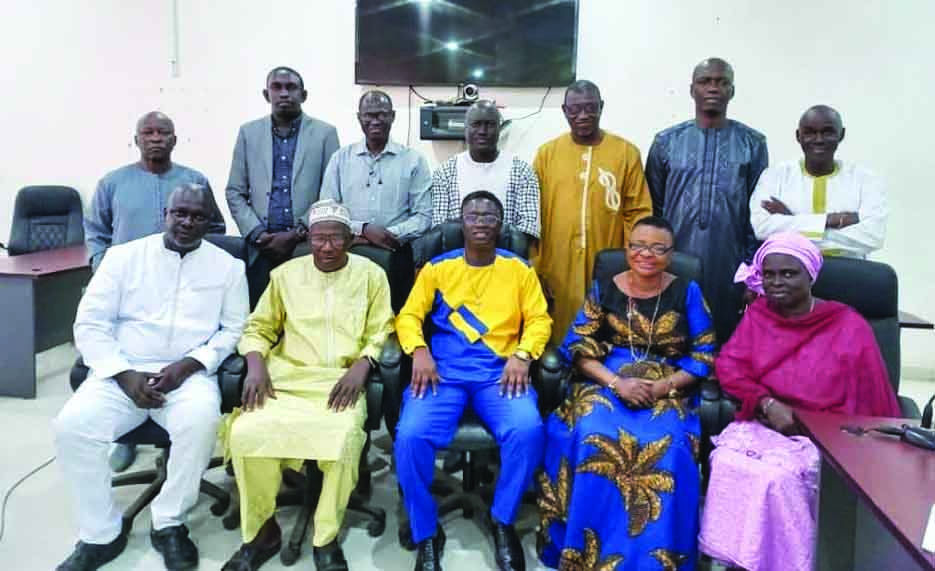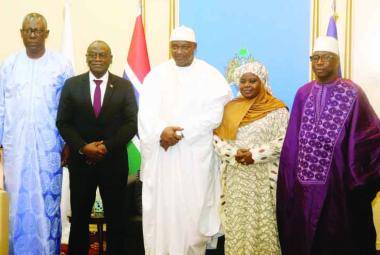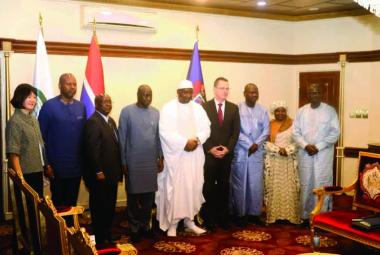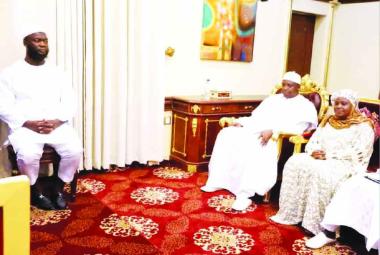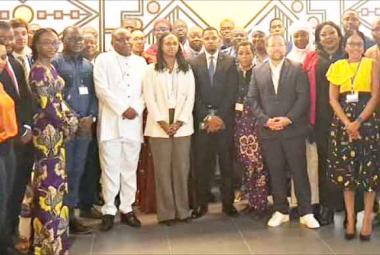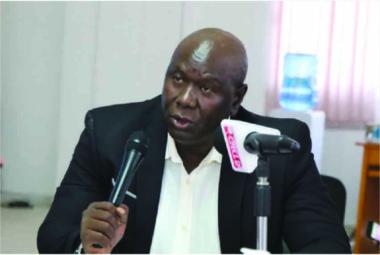The Ministry of Higher Education, Research, Science and Technology (MoHERST) recently held a media briefing on the development of a national strategy for the increased participation of the female gender in Tertiary and Higher Education” at its conference hall in Bijilo.
Ms. Kumba Jammeh, the Principal Research Officer and Ministry’s Gender Focal Person, welcomed the guests and expressed gratitude to the Government of The Gambia and the World Bank for implementing such an important initiative.
The Honourable Minister of Higher Education, Research, Science and Technology, Professor Pierre Gomez highlighted key tertiary and higher education challenges that are confronting the participation of women and girls in higher tertiary education.
Referencing the available data in the country regarding girls’ enrolment, Minister Gomez indicated that the number of female graduates in senior secondary level appears to be significantly higher than that of boys as opposed to the number of female graduates in tertiary higher institutions. This, he noted, is considerably lower in number, compared to their male counterparts. Thus, he indicated hopes that the upcoming study would present a comprehensive strategy that would be informed by data on the causes of the low-level participation of women and girls in tertiary and higher education institutions; as well as put recommend strategies to address these issues.
The Permanent Secretary, Dr. Yusupha Touray gave a brief statement on the importance of female participation in tertiary and higher education. He elaborated on the Ministry’s support in conducting a nationwide study in order to attain comprehensive data in a form of a report that will inspire the Ministry’s transformative agenda in tertiary and higher education for women.
He underscored the importance of catering for women who form the majority in the country’s population; which he stressed, references marginalisation, thus presenting gender imbalance in terms of representation in the tertiary and higher education levels.
Mrs. Emily Sarr, gender consultant called for strategies that would address gender gaps between men and women in tertiary and higher education institutions. She noted that significant strides have been made through the National Constitution, the Women’s Act of 2010, and its Amendment in 2015.
However, she stated despite some positive indicators, gender disparities persist in leadership and trust positions. “Predominantly, males hold roles such as legislators, senior officials, and managers, representing 66.2% of such positions. Likewise, professional, and technical occupations are largely occupied by men (73.2%), leaving women with a share of only 26.8% in these roles”.
Thus, she noted that funding opportunities and career guidance will help ensure all girls and women have equal opportunities to pursue higher education, and develop meaningful careers regardless of their socio- economic status. Mrs. Sarr concluded her statement with a call for action, noting that in today’s rapidly evolving world, education is the corner stone of progress, innovation and equality.
MoHERST’s New Strategy to Increase Female Participation in Tertiary, Higher Education
